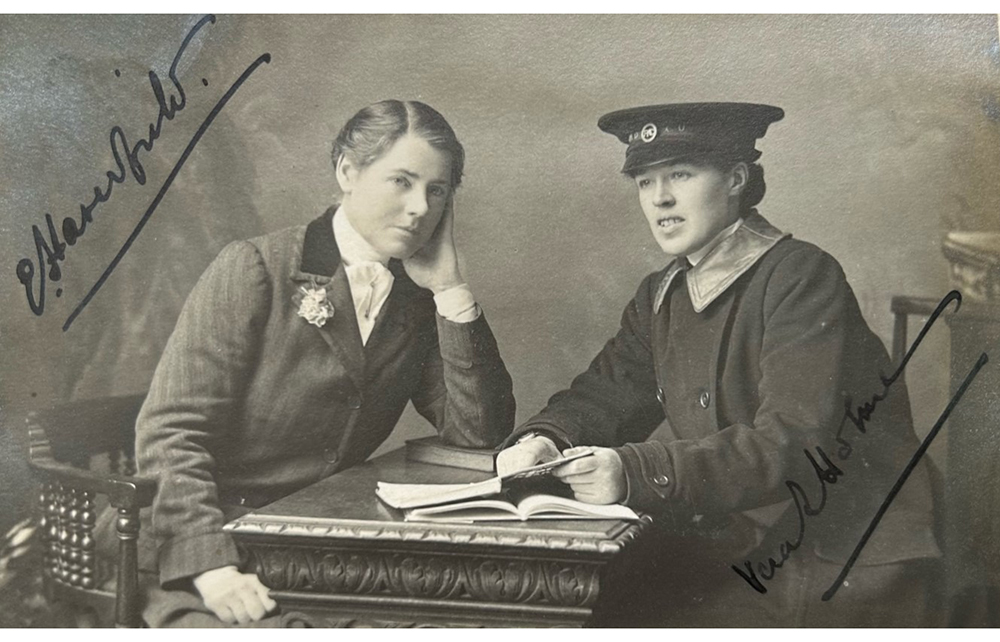Lesbian military fiction is a popular genre, featuring titles such as Silver Wings and An Army of One, but Jack and Eve is a true story. Written by the journalist Wendy Moore, whose previous books tackled medical and social history, it tells of two suffragettes who caused havoc in the first world war and exposed the absurdity of Edwardian homophobes.
Before the war, the jobbing actor Vera Holme, who liked to be known as Jack, changed careers to become Emmeline Pankhurst’s mechanic and chauffeur. In 1908 she met Evelina Haverfield, the conventionally beautiful, wealthy daughter of a Scottish baron. The two fell in love, began living together and soon became the public faces of the suffragette movement. Brave and out-spoken, they fought their corner fearlessly and went to prison.
Moore expertly weaves together two narratives that have been overlooked. One concerns the development in the past century of a lesbian culture among women she describes as ‘forthright, flamboyant and proud’. The other is the story of what happened in the Balkans during the first world war.
When fighting began, Jack and Eve halted their campaign for female emancipation, enrolled in the Scottish Women’s Hospital service and before long were sent to Serbia. Jack drove ambulances and Eve ran hospitals for injured soldiers. Both travelled along dirt tracks under enemy fire to collect wounded men from the front line. This is a story of two women who challenged gender roles: Jack with her masculine clothes and mechanical skills; Eve, the beautiful aristocrat who loved to get her hands dirty. They felt themselves capable of achieving anything together and were determined to assert their right to love each other.
The book is packed with feats of courage amid perilous conditions as the couple were held prisoner, then escaped and travelled through revolutionary Russia carrying smuggled documents. Events are described powerfully yet subtly, and there is no drama for its own sake. Jack, Eve and their colleagues are given plenty of space, and local people are folded into the tale.
A meticulous researcher, Moore makes extensive use of contemporary diaries and letters. There was great tenderness and love between the two women, despite the harrowing circumstances in which they found themselves. Their time together in grim quarters was spent trying to recreate their lives back home. They read to each other, and kept warm by covering the windows with blankets. Eve cooked, and nursed Jack when she was ill; Jack picked flowers for Eve, pinning them to her coat.
They were certainly advanced in terms of their beliefs and the way they expressed their sexuality and relationships. Jack enjoyed numerous sexual encounters with other women (all detailed in her diaries) and had a particular penchant for three-way relationships. One such dalliance was with the friend she called her ‘darling Alick’. It is possible that Eve had similar liaisons – perhaps with Alick’s partner Celia, whom she was close to. Yet the bond between Jack and Eve remained unbreakable, and when Eve died in Serbia soon after the war ended, Jack was heartbroken.
This is a story about resistance, about the refusal to conform or capitulate, and one which should inspire all women aware of how far we still have to go to be treated as men’s equals. Reading the book was like taking a cool shower after a hot day. Whether in terms of their roles in the war, the freedom to dress as they wished or the way they loved, these two women were truly revolutionary.








Comments